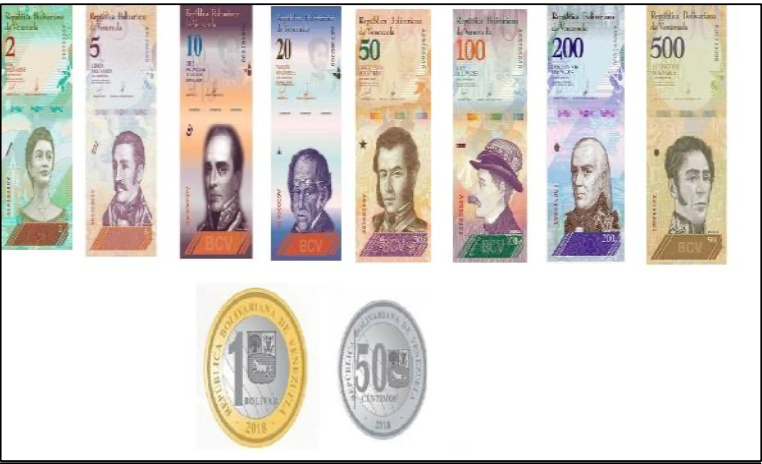By Himasutha Reddy
Venezuela, August 6: Venezuela is a country situated in South America. With a population of 2.85 crores, the country is one of the most urbanized countries in Latin America. The official currency used in Venezuela is bolívar soberano. The bolívar soberano replaced the bolívar fuerte due to hyperinflation. It is the currency with the most negligible value in the world. 1 Indian Rupee is equal to 54,355.13 bolívar Soberano at the moment.
Inflation is a situation in which the prices of goods are going up over a while. For example, in Venezuela, the prices of even essential commodities, such as food, increases at a higher rate.
The inflation rate of a country is calculated through a consumer basket method. The economists first make a consumer basket that consists of the following things such as:
- Prices of the basic food and drinks: milk, vegetables
- Prices of housing: monthly rent
- Prices of education services: school fees, tuitions
- Prices of transportation: railway tickets, bus tickets,cost of the car and the total cost of the fuel requiredto run it
- Prices of clothing: clothes for women and men
- Prices of medical care bills: cost of medical insurance, medicines, surgeries
The economists add up all the final prices and compare the prices by the formula below: Y= Prices of consumer basket in year 2; X= Prices of consumer basket in year 1
Inflation rate = (y–x)x*100
The inflation rate indicates the rate at which the prices increased from the previous year. An annual inflation rate of 2% is considered stable for a country. In June, the central bank reported that the prices of the consumer basket goods rose 28.5% in May, more than the 24.6% rise in prices in April. According to Reuters calculations based on the central bank’s data, this led to an annual inflation rate of 2719%. The inflation rate last year was 2575%.
How does hyperinflation affect the people in Venezuela? Is it a bad thing?
An annual inflation rate of 2719% is not good for the economy. With such a high rise in prices and the uncertainty in the prices, society (consumers) will be less likely to spend money on goods and services. With the high rise in prices, more money is now required to buy the same goods and services. Example: Let’s assume a loaf of bread cost around 30 rupees last year. With an inflation rate of 2719%, the price will skyrocket up to around 815 rupees.
Therefore, consumers will now need a lot more money to buy the same loaf of bread, which causes them a loss. With the prices soaring so high, the value of the money will decrease. With prices changing regularly, the price lists, menus, etc., need to be changed periodically and updated, which involves money to print them again, etc. People who would have saved up money before to purchase luxurious stuff/invest will now not be able to buy them because they will now need the money to buy essential goods and services to survive. For workers who would have signed contracts to work for a few years under then at a fixed price, with such a huge change in prices, they may fall into a position where they may not be able to afford goods and services.
With inflation rates that high in a country, the goods and services produced domestically will have very prices compared to those produced in other countries. Therefore, people in a country may buy goods from other countries due to their lower prices.
With the costs of the necessities such as food and medicines soaring up so high, citizens’ health is getting deteriorated day by day. They’re going hungry, and their standards of living have deteriorated.
What caused hyperinflation in Venezuela?
- A few years ago, Venezuela’s government imposed many schemes and programs that aimed at improving the health of the citizens. Though these programs were successful at the end to quite an extent and helped improve the lives of the citizens, these programs required a lot of government’s money and the government also had to take loans from other countries for implementing them for a longer time. With a large amount of debt to foreign countries, the bolívar soberano’s value depreciated even more.
- Due to the fall in prices of oil, with a huge amount of Venezuela’s GDP contributed from the oil exports to other countries, the economy was highly impacted.
- When the government printed money (Venezuela currency)to pay off debts, the hyperinflation was triggered.
- With less availability of food, the prices of food soared really high due to high demand for it and less quantity of food available in the market.
What did Venezuela’s government do to overcome hyperinflation?
To overcome this problem, the government stated yesterday that six zeroes from the bolívar soberano will be removed. Therefore, the current one million bolívar soberano will now be just one bolívar soberano. The new currency will also have a new name: bolívar digital. The central bank stated that they will print new bills from 1st October and motivated the citizens to use digital currency too.

